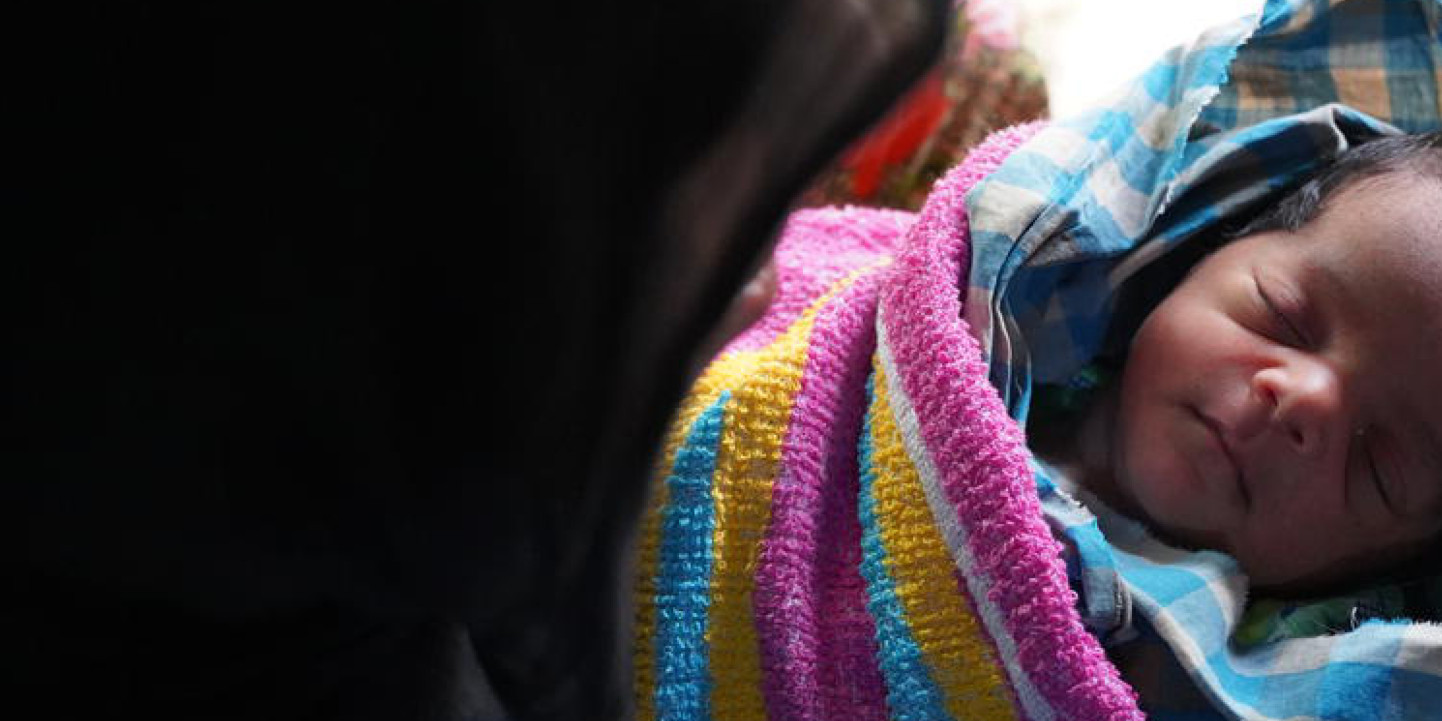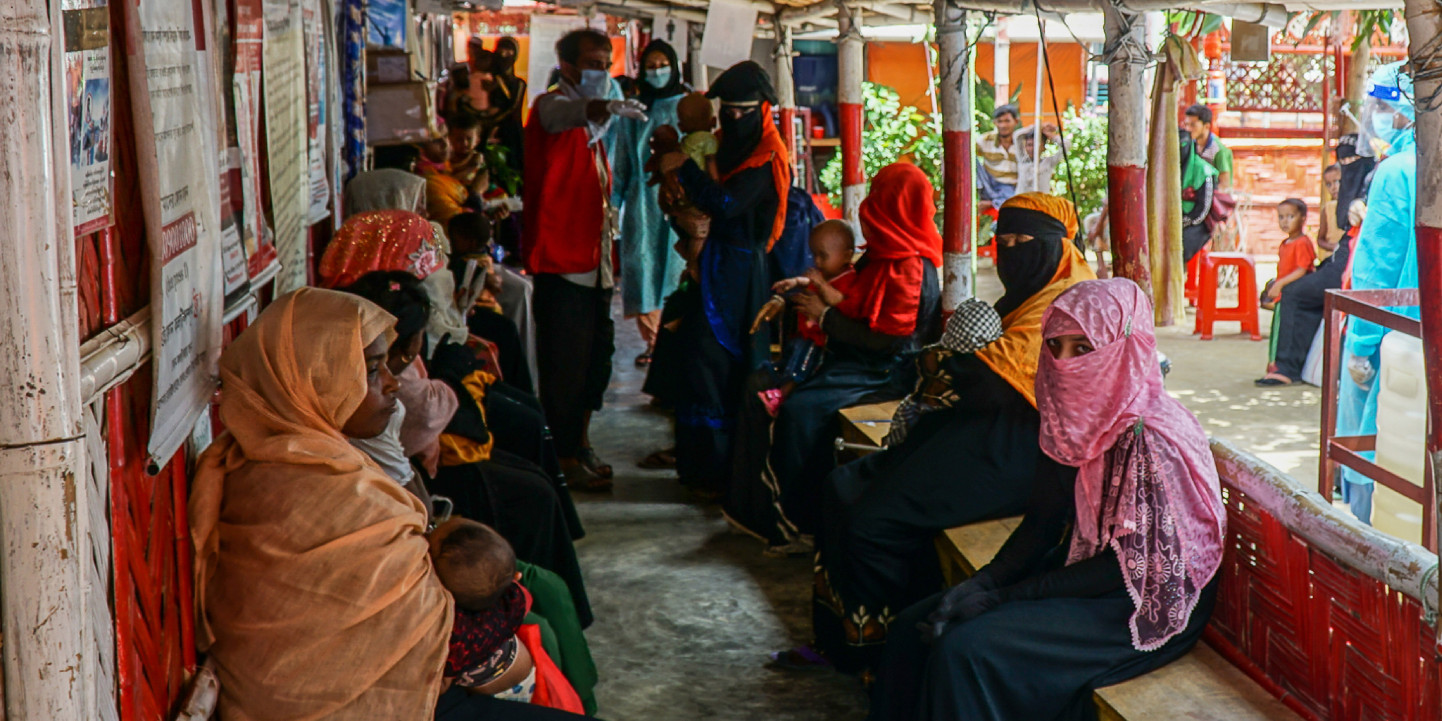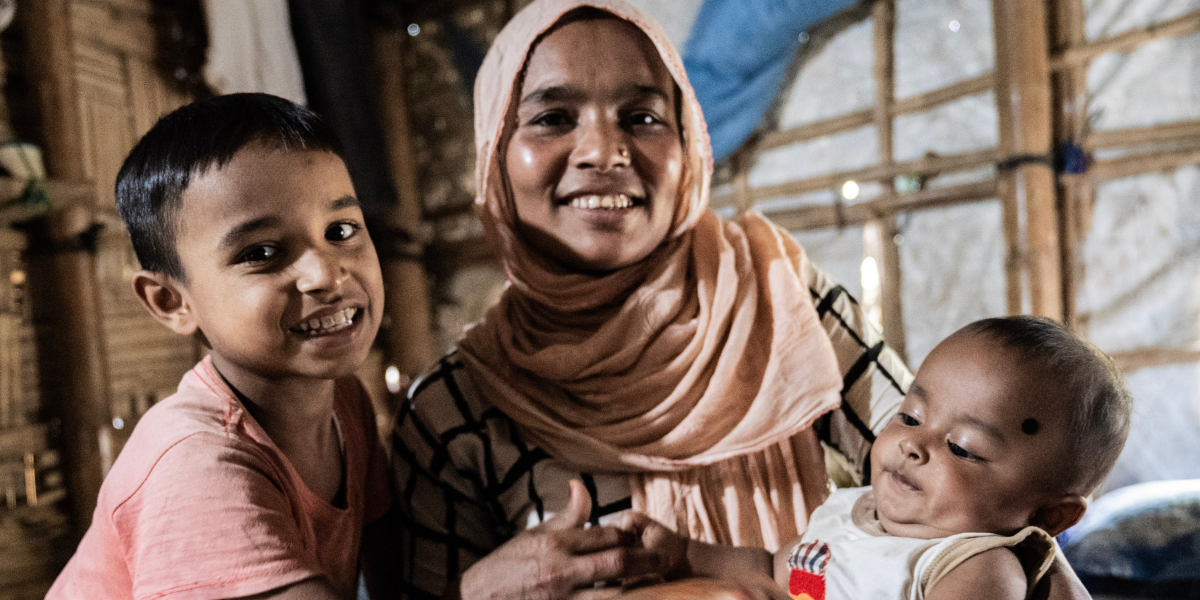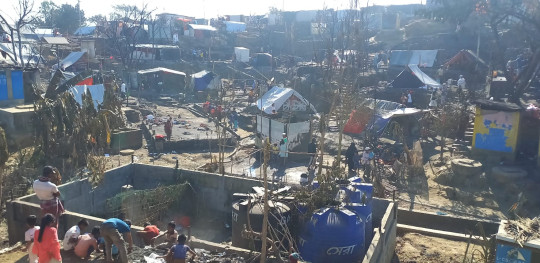Over half of Rohingya refugees are children
Almost half a million Rohingya children are growing up in the world’s largest refugee camp in Cox’s Bazar, Bangladesh – stateless, unrecognised and lost. This is a children’s crisis. Save the Children is one of the leading International NGOs working inside the camps.
It has been more than eight years since over 700,000 Rohingya refugees fled violence in Myanmar to seek safety in Bangladesh.
Most arrives in a state of shock, grief and exhaustion, carrying nothing but the clothes on their back. Now the humanitarian situation is reaching its breaking point. For eight years, Rohingya refugee children have gone without formal education; parents and caregivers have gone without employment, and all refugees have become more vulnerable to deaths and injuries from large-scale fires, flooding and rising insecurity than ever before.
Cox’s Bazar is home to the largest refugee settlement in the world, with almost one million Rohingya refugees living inside the sprawling camps. Many families are reliant on food rations to survive. They need access to safe water and healthcare. Three in four children are out of school, girls are exposed to violence and abuse and 30,000 babies are born each year only to grow up in the most difficult circumstances.
The basic living conditions inside the camp are dire. Overcrowded makeshift housing, combined with no access to adequate hygiene and sanitation facilities or clean water, mean that children are constantly contracting respiratory tract infections, especially the common cold. Pneumonia is the most common cause of death, and acute diarrhoea, skin diseases, worm infections and scabies are increasingly common.
Rohingya children are worried about their futures. They need hope.
Our response
Save the Children is one of the leading International NGOs working in Cox’s Bazar and has been there since 2012.
Save the Children is on the ground ensuring children are safe, protected and learning. We've built health facilities, including a 20-bed Primary Health Care Centre, which provide 24-hour care for sick and injured children, and the health posts generous Kiwis like you are helping us to keep open.
We've installed toilets and bathing units, and are distributing essential hygiene items so children can stay healthy. We're providing emotional and psychosocial support to children to help them come to terms with the traumatic experiences they've been through.
With the support of the Bangladesh Government, we've also set up informal learning opportunities at 100 learning centres across Rohingya refugee camps in Bangladesh, and are distributing teaching and learning materials so children can continue to learn. And, we've set up Child and Girl Friendly Spaces where children can learn, play and be children again.
But we need your help to continue this life-saving work!
Hamida*’s story
Meet Hamida, when she went into labour in her shelter in Cox’s Bazar, she was alone.
“There was no one at home, so I informed a neighbour. She called the hospital, and soon the ambulance arrived,” she recalls.
At the Save the Children-supported health post, midwives examined her and discovered a complication - Hamida was carrying twins, and one baby was in a breech position.
“I asked them to perform a caesarean,” she says. “But they said, ‘No, a caesarean won’t be needed. We will deliver the babies normally.’ And the midwives successfully delivered my babies.”
Despite their best efforts, one of the twins became severely ill and required emergency referral. Hamida was taken first to Cox’s Bazar and then to Chittagong for advanced care.
“The sick baby passed away,” she says quietly. “After seven days, we returned to our home in the camp. Since then, my only concern has been to keep this son healthy.”
She adds, “Now my only concern is how to raise and protect this baby. Whenever I feel anxious, I come to the health post. The APAs gave me all my pregnancy vaccines and my baby’s as well. They take very good care of us.”
Hamida remains deeply grateful to the health workers who supported her through pregnancy, delivery and recovery.
“Without the APAs, how could I have managed if I had to give birth at home? I had excessive bleeding, and the whole place was soaked. I told them to give me medicine, and they provided it. They saved me.”
Today, Hamida’s surviving son, Anwar*, is healthy, but she still worries about his future.
“We live in a camp. What will I feed him? How will I raise him? How will I educate him?” she asks.
Despite these worries, her hope endures:
“I want him to be healthy. I want him to be educated. That’s all I pray for.”
*Names changed to protect identities.
Looking ahead
The situation in Cox’s Bazar remains one of the most protracted refugee crises in the world. After eight years, Rohingya families, especially children, continue to live without certainty, opportunity or recognition.
Save the Children continues to work alongside the Bangladesh Government, local partners and international donors to meet urgent humanitarian needs while advocating for long-term solutions.
Every child deserves a safe birth, access to healthcare, and the chance to learn. Hamida’s story is a reminder of what’s at stake, and of the difference that care, compassion and support can make.
Rohingya children need hope. They need us to stand with them.





